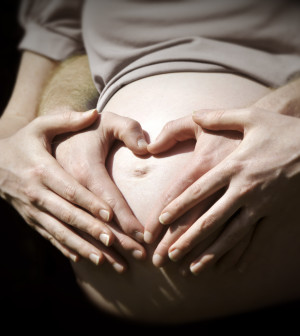- Recognizing the Signs of Hypothyroidism
- 10 Strategies to Overcome Insomnia
- Could Artificial Sweeteners Be Aging the Brain Faster?
- Techniques for Soothing Your Nervous System
- Does the Water in Your House Smell Funny? Here’s Why
- Can a Daily Dose of Apple Cider Vinegar Actually Aid Weight Loss?
- 6 Health Beverages That Can Actually Spike Your Blood Sugar
- Treatment Options for Social Anxiety Disorder
- Understanding the Connection Between Anxiety and Depression
- How Daily Prunes Can Influence Cholesterol and Inflammation
Mexican Women’s Breast Cancer Risk Tied to Breast-Feeding?


FRIDAY, Oct. 4Previous research has found that breast-feeding and increased childbearing may help reduce a woman’s risk of breast cancer, but a new study suggests that may not be true for women of Mexican descent.
The four-year study included more than 1,000 Mexican and Mexican-American breast cancer patients, and concluded that Mexican women who breast-feed and have more children may be at increased risk for aggressive breast cancer.
“We found that breast-feeding in women of Mexican descent is associated with triple-negative breast cancer,” said study author Maria Elena Martinez, a cancer researcher at the University of California, San Diego. “This was quite surprising. No other study has seen this correlation before. Most studies show health benefits of breast-feeding.”
The study only found an association between breast-feeding, multiple childbirths and breast cancer risk, however. It did not prove a cause-and-effect link.
Triple-negative breast cancer is an aggressive form of breast cancer that’s difficult to treat.
Specifically, the researchers found that women of Mexican descent who breast-fed for 12 months or longer had more than twice the increased risk of triple-negative breast cancer. They were younger at diagnosis and younger during their first full-term pregnancy.
Patients who had three or more children were also more likely to have triple-negative breast cancer, according to the study recently published online in the journal Cancer Epidemiology, Biomarkers & Prevention.
“Our results are both puzzling and disconcerting because we do not want to give the wrong message about breast-feeding,” Martinez said in a university news release. “If you treat breast cancer as one disease, breast-feeding is beneficial to both mother and baby. That should not be dismissed.”
She said further research is needed.
More information
The U.S. Office on Women’s Health has more about breast-feeding.
Source: HealthDay
Copyright © 2026 HealthDay. All rights reserved.










